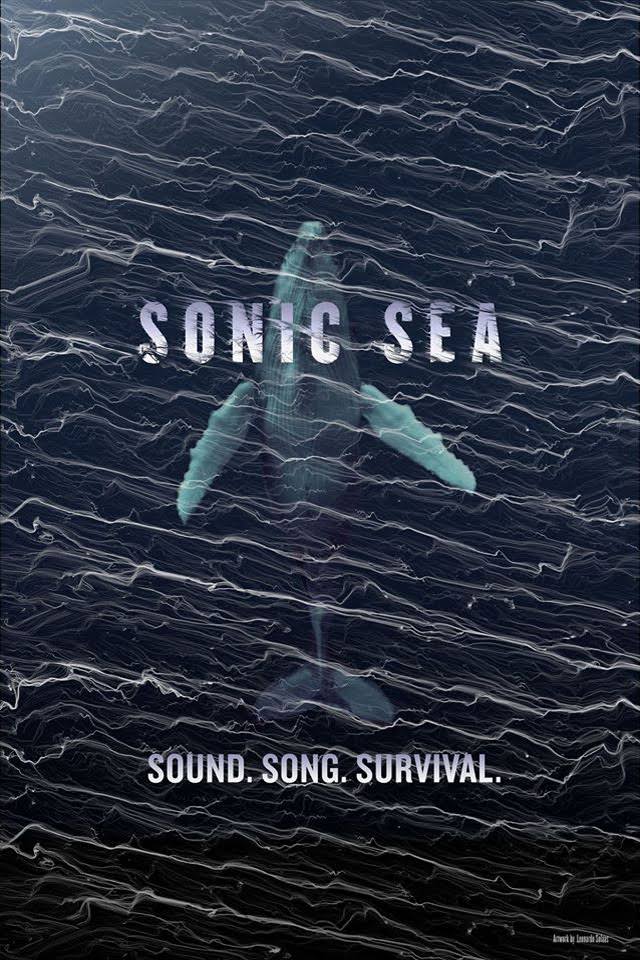By Chris McDaniel
Peninsula Daily News
PORT TOWNSEND — Sonic Sea — a documentary examining the effect man-made noise pollution has on marine wildlife in the Strait of Juan de Fuca — will be screened at 7 tonight.
The film will be shown at the Quimper Unitarian Universalist Fellowship church building at 2333 San Juan Ave.
Admission will be a suggested donation of $10.
Port Townsend Marine Science Center and the Green Sanctuary Committee are co-leaders of this event.
The Port Townsend Marine Science Center will offer an exhibit table in the lobby, and sponsors will have informational materials as well.
Effect of noise
The film — produced by the Natural Resources Defense Council and Imaginary Forces in association with the International Fund for Animal Welfare and Diamond Docs — investigates how noise from Navy sonar, drilling operations and everyday vessel traffic adversely impacts whales and other sea life.
“If you see one documentary this year, this is the one,” said Cherri Mann, Sonic Sea Project team member.
“Learn about what happens below the surface of our Salish Sea, and you will be changed.”
Ken Balcomb of the Center for Whale Research and Michael Jasny of the National Resources Defense Council will speak and, after the film, lead a question-and-answer session.
Noise Pollution
Human-induced ocean noise is a newly recognized form of pollution that can be a threat to sea mammals and marine life, they added.
The film, they said, brings the complex world of human-engineered ocean sound to life in a realistic manner, adding audiences get a genuine flavor for what sound is like underwater.
“The ocean is a world of sound,” said Jasny, a leading expert in the law and policy of ocean noise pollution.
“Whales and other marine life use it to find mates, find food, avoid predators, navigate, maintain their communities, and orient themselves — in short, for virtually everything they must do to survive.”
In the modern era, “human noise has emerged as a major environmental threat,” Jasny said.
“Humans are blanketing the ocean with what biologists have called ‘acoustic smog,’ degrading the ability of marine life to communicate, to forage, to breed,” he said. “Ocean noise has become a major environmental threat, and with this film, we have attempted to make it visible.”
Balcomb, a whale researcher and pioneer in whale identification, solved the mystery behind the mass stranding of whales in the Bahamas. The cause, he said, was Navy sonar that created what Balcomb called an “acoustic holocaust.”
Here in Washington state, Balcomb conducts research on the endangered Southern Resident Orca population that numbers only 83.
“Whales are the local fabric, and are a superb indicator of the ecosystem,” Balcomb said. “It’s a big ocean. There is just no reason why whales and the Navy can’t coexist.”
Expanded testing
The National Marine Fisheries Service in November authorized a Navy proposal to expand sonar testing and other warfare training off the Northwest coast.
Agency officials said it had determined the exercises would not have major impacts on endangered orcas and other marine mammals.
The training zone includes areas off the North Olympic Peninsula’s Pacific Coast — including the Olympic Coast National Marine Sanctuary — off Indian Island and in the Strait of Juan de Fuca. Navy officials have said the exercises are needed to ensure its forces are ready for conflicts and noted it has trained for decades in the area without significant effects on the animals.
There are constructive ways to mitigate harmful ocean noise, Balcomb said. The first step, he said, is to realize that it is here in the Salish Sea and elsewhere, and he encourages the public to “find ways to get hooked on a healthy world.”
Kees Kolff, Green Sanctuary Committee co-chair, said “our Salish Sea is an invaluable treasure.
“Only through heartfelt collaboration will we be able to protect it and all oceans for the remarkable creatures they support and for future generations. Sonic Sea provides some of the knowledge and inspiration we desperately need.”
Barb Laski of Harmony’s Way added: “We are not separate from ocean. We are part of water, and it is part of us. What happens to ocean, happens to us.”
________
Reporter Chris McDaniel can be reached at 360-452-2345, ext. 56650, or cmcdaniel@peninsuladailynews.com.
